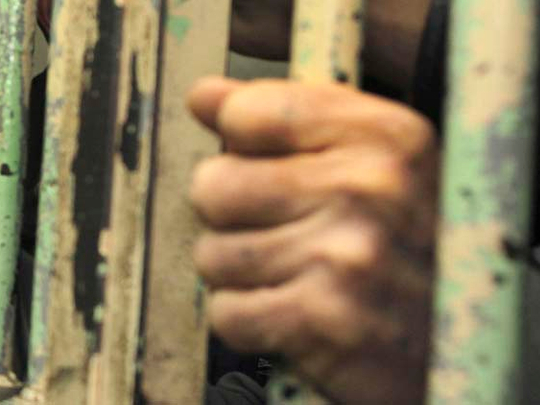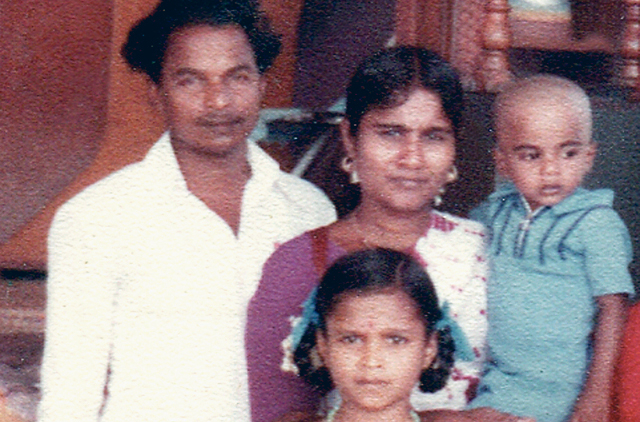
Dubai: Paul George Nadar was heavily drunk when he stumbled towards his house in Frij Al Murar on a humid Thursday evening on October 10, 1985.
But no one - not even his Pakistani neighbours who beat him up when he loitered into their shanty would have thought that the Indian carpenter would soon carry out one of the most grisly crimes on Dubai soil.
Burning with vengeance and still high on liquor, Nadar returned an hour later with a can of paint thinner. He doused the shanty walls with the highly inflammable material and set a match to it.
Status of the death row cases
Chart of pending death row cases
Within seconds, the whole place was up in flames.
When the fire was brought under control the police recovered the charred remains of two women and seven children.
The following morning Nadar was arrested. The arson killer, as he came to be known, was charged, and subsequently sentenced to death. Almost two-and-a-half decades later, Nadar, now 64, is still languishing in Dubai's Central Jail, becoming the longest-serving convict on death row in the emirate. Like him, XPRESS can reveal, there are 23 others who remain behind bars with the death sentence awarded to them yet to be carried out.
According to prosecution records, five of these cases, including the recent one of the Emirati child rapist and killer, are still under appeal. However, execution in the remaining 19 cases has been suspended pending the approval of the Ruler, sources said, adding that the last execution in Dubai was that of a Yemeni national in 2002 for killing his uncle. Four others were executed in the late '90s, including three Indians for premeditated murder and an Arab national for raping an eight-year-old girl.
Legal course
Ahmad Saif, Chief Justice of the Dubai Criminal Court of First Instance, told XPRESS that a death ruling issued by the Court of First Instance, if upheld by both the Courts of Appeal and Cassation, is submitted to the Ruler for approval. As per Articles 282-289 under the UAE Criminal Procedure Law, when a convict is sentenced to death and the sentence has been upheld by all the courts, he remains imprisoned until an approval for his execution is granted.
Most death row inmates are convicted of premeditated murder. For instance, Munawar Dost Mohammad, a 40-year-old Pakistani, was put on death row in 1999 after he killed an Omani national with the help of two others and then tried to destroy evidence.
The same year an Indian, Anil Motyati Adho, 38, was sentenced to death for stalking his victim before killing him. As time hangs heavy, the delayed execution has raised hopes of a pardon for some inmates and their families.
"Definitely I regret what happened. My father will be completing 25 years in prison this October and I hope he will be pardoned and released," said Nadar's son Subharajan, an engineer with a private Dubai firm.
Long struggle
In an interview to XPRESS last week, Subharajan recalled he was only three years old, and in India, when his father committed the crime. It was a long struggle, he said, explaining how his mother raised him and his elder sister. "I managed to do my engineering with the help of my father's brother and my sister," said the 28-year-old who got married last September.
He said words failed to describe how he felt when he first met his father in June 2005. And it was not until July last year that he got special permission for a direct interface with him along with his sister and her daughter.
Sources said it is not uncommon for convicts to appeal for a pardon from authorities. They also seek a pardon from the victims' families after paying blood money. Subharajan said Nadar had paid a stipulated sum to the Pakistani victims' families in 1996, following which they had pardoned him. Nadar also reportedly submitted a mercy petition to the government through the Indian Consulate last year (see letter below).
Major Abdul Hakeem Ahmad, Director of Dubai Central Jail, said, "Most of them [convicts] were not born killers and their crimes are the consequence of an evil moment; some of them may be lucky and get a pardon."
Nadar, who said in his petition that "a slip in my presence of mind in a particular moment" resulted in the death of a Pakistani family, hopes he will be one of them.
Mercy petition from Paul George Nadar
To
The Vice-President and Prime Minister of UAE and
The Ruler of Dubai-U.A.E.
Your Excellency
Sub: Mercy petition
Though I am fully aware that I am not worthy enough to put before you this mercy petition, my 24 years of imprisonment, one of the prisoners who served the longest term in the history of Dubai prison, has opened my eyes to a new world of love and compassion. Thanks to the good Samaritans who visit me at times and console me. Their visits have opened my eyes and filled my heart with the unfailing love of God. Putting my trust in the Lord and the faith and strength I gained through Him enabled me to write these few words to your Excellency.
A slip of my presence of mind in a particular moment resulted [in] the death of a Pakistani family in October 1985. A copy of my case file explaining the whole history is attached herewith for your reference. Though I received the Tanasal (no objection letter) from the deceased family members after paying them the blood money in 1996, my release is still on hold awaiting Your Excellency's orders as well as from the Lord. My 24 years prison record proves that I am still maintaining good record among the prison authorities with no remarks till date.
For a moment my mind drew me back to my past……………,
24 years back where I lived with my wife, who is now 58 years old, my little daughter who is now married and a mother of one child, my little son, who is working as an Asst Electrical Engineer, and my good old days when I enjoyed the warmth of a happy family life. My heart's intense longing for hugging my grandchild and other family members once again which resurfaced in a dream prompted me to write this letter. I will have no regrets even if Your Excellency doesn't consider my request, as I am aware that I don't deserve to be free for such a heinous crime. However, I pray that my Good Lord and Your Excellency will show mercy to me to reunite with my family and see the outside world once again.
I in return have only my whole hearted prayers to the Lord for your Excellency's good health, long life and prosperity.
Yours sincerely
(Paul George Nadar)
Dubai Central Prison
Execution Procedure
- Convicts on death row are granted visitation rights until the day of execution. Their families can visit them during their imprisonment and on the day of execution, but not at the execution itself. The victim’s families are allowed to witness the execution
- The prosecution is obliged to inform the family of the victim of the execution date 30 days in advance
- Representatives from the prosecution, Ministry of Interior, director of the correctional facility and a physician are required to be present during the execution. The defence lawyer is allowed to be present, if he wishes to
- The director of the correctional facility or one of his nominees should read the verdict aloud before the execution. Any last words by the convict will be documented by the prosecution representative as will the time of death announced by the physician
- Executions are not to be carried out during national holidays or holidays under the convict’s religion
- Pregnant convicts will not be executed until they deliver the child and nurse the newborn for two hijri years
- Court and jail sources told XPRESS that the preferred method of execution is by firing squad













